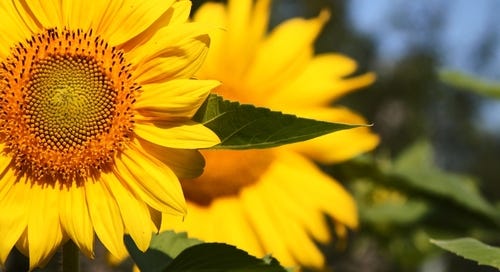Once a tiny seed …
Paid subscriptions just $6 a month! Get yours today for full content
It is almost impossible these days to read about healthy eating and not come across the word seeds. I don’t know about you, but that makes me think of birds pecking away at their lunch. Yes, I do like sesame seed bagels and I remember how as kids we snacked on sunflower seeds, opening shells with our teeth. Ten-year-olds thought this was extremely cool, which made piles of cast-off shells worth the effort.
However, you can be sure we kids—and likely most grown-ups—had no idea that sunflower seeds were actually good for us. That, though, has changed with the years. First Paleo folks took to seeds knowing that the ancients ate them. More recently, body builders started snacking on pumpkin seeds because pepitas, as they are called, have zinc and other nutrients that benefit testosterone levels. Gradually, many other types of seeds made their way into general health news and here we are.
Plant birthing
Seeds are actually tiny plant embryos. As such they contain the building blocks needed to create plants and sustain them until they can provide for themselves via photosynthesis. (It’s very sweet, don’t you think?) What that means for human consumption is that eating seeds packs a wallop of health—fiber, protein, healthy fats, vitamins, and minerals, plus iron, calcium, magnesium and phosphorus.
… it’s hard to get our daily nutrition needs through an array of different foods
Each type of seed has additional nutrients according to the particular plant’s needs, and these also benefit humans. This brings me to why seeds consumption really can make a difference for you. I think you would agree that it’s hard to get all the daily nutrition needs through an array of different foods. But here is the beauty of seeds! A handful or two of them and you’ve filled in the gaps and then some!
Keep reading with a 7-day free trial
Subscribe to Health Wise Friday to keep reading this post and get 7 days of free access to the full post archives.




